The Russian war against Ukraine has indeed had a profound impact on Africa’s economy, particularly in terms of trade disruptions, commodity price increases, and tighter financial conditions.
The war has led to skyrocketing commodity prices in countries like Zimbabwe and Zambia, which have been relying on heavy imports from the two countries.
The conflict has also affected global economic recovery from the COVID-19 pandemic, slowing it down significantly.
In fact, the Organization for Economic Cooperation and Development (OECD) reports that Europe’s economy has been particularly affected, with growth projected to be just 0.3 percent in 2023.
Additionally, the war has led to a significant increase in global inflation, with prices expected to remain elevated for months.
This has raised concerns about the impact on central banks’ monetary policies, with some expecting a less aggressive approach to monetary tightening.
Russia’s full scale invasion of Ukraine has severely impacted trade in Africa, according to Zimbabwe’s main opposition Parliamentary chief whip, Edwin Mushoriwa.
The war has disrupted Ukraine’s grain and fertilizer supplies, essential commodities for many African countries.
As a result, procurement has become challenging, and prices have skyrocketed, affecting the most vulnerable populations.
The conflict’s economic fallout extends beyond Africa, slowing global recovery from the COVID-19 pandemic.
The Organisation for Economic Cooperation and Development (OECD) reports that Europe’s economy has been particularly affected, with growth projected to be just 0.3 percent in 2023.
Mushoriwa also expressed concerns about the shrinking democratic space in African nations, citing rising human rights abuse and electoral fraud.
The situation underscores the need for African countries to diversify their trade partners and strengthen their economies to mitigate the effects of global conflicts.
He expressed concern that the international community’s focus on the Russian-Ukraine and Israel-Hamas conflicts has diverted attention from Africa’s pressing issues.
He believes this distraction has emboldened African dictators, allowing human rights abuses, electoral fraud, and democratic threats to persist unchecked.
The Zimbabwe opposition parliamentary whip specifically highlighted the detrimental presence of the Wagner Group, a Russian mercenary organisation, in Central and Western Africa.
The group’s activities, including training and supporting local forces, have created chaos, disunity, and disorder, ultimately benefiting Russia’s interests.
Mushoriwa emphasised that Africa should be a “rule-maker, not a rule-taker,” but the continent’s current circumstances hinder its ability to achieve economic growth and stability.
The international community’s inattention to these issues has significant consequences for Africa’s future.
The 2023 World Bank report reveals the Russian-Ukraine war’s far-reaching impact on Africa’s economy.
Global price hikes for oil, food, and fertilizers may reduce Africa’s annual GDP by $7 billion.
Actual effects may be higher due to significant price increases (40% oil, 18% food, 55% fertilizers).
This has led to interest rate hikes, capital outflows, and borrowing costs for many African countries.
And in June this year (2024), Zimbabwe’s former Finance Minister Tendai Biti, scholar Dr Greg Mills and Ugandan opposition leader Bobi Wine said Africa should unite in supporting Ukraine’s peace initiative which is not only the right thing to do for Africans who value sovereignty and the rule of law, but also in their own self-interest.
As leaders from countries around the world gathered in Switzerland in June this year to seek a way to bring peace to Ukraine, now in the third year since Russia’s full scale invasion, a summit communiqué was drafted which is guided by key UN resolutions, to which 82 state (and six multinational) signatories representing more than 60 percent of global GDP have so far signed.
The three leaders emphasize that Africa should condemn Russia’s war against Ukraine, upholding international law, including the UN Charter.
They stress the importance of refraining from force against territorial integrity or political independence of any state, and resolving disputes through peaceful means.
Africa’s experience with colonisation makes it particularly aware of the harm caused by aggression, and the lasting trauma that persists even after peace is negotiated.
This is why Biti, Mills, and Wine believe Africa should wholeheartedly unite in supporting Ukraine’s peace initiative.
“Africans have a unique perspective and experience that can greatly contribute to the global conversation, and it’s crucial they don’t relegate themselves to being mere spectators.
The issue of sovereignty protection is particularly important for Africa, where many countries struggle to govern their colonial borders and territories.
The impact of global events, such as the Ukraine invasion, on Africa’s food security is a pressing concern.
With many African countries already facing droughts and low harvests, the rising costs of basic foodstuffs have severe consequences.
In the Horn of Africa, for example, 23 million people are experiencing food insecurity, with 7.5 million children acutely malnourished,” the stated.
The statement from the summit highlights the critical issue of global food security and emphasises the impact of the Ukraine invasion on Africa, the three leaders added.
“With many African countries already facing droughts and low harvests, the rising costs of basic foodstuffs have severe consequences. Africa is home to the majority of the world’s poor, with a per capita income of just 15 percent of the global average, and 490 million sub-Saharan Africans living in poverty, representing 40 percent of the continent’s population and two-thirds of the global total,” they stated.
“The ending of this war, as well as the unchecked military aggression in Sudan and the terrible conflict engulfing the Middle East, is of the utmost concern to Africans. There are other costs, not least in the diversion of aid from African conflicts and humanitarian needs, and the militarisation of foreign policies towards the continent. The states that have signed the communique so far are among the most generous contributors to African development, having provided more than $30 billion in aid to Africa since Russia’s invasion in February 2022.”
Ukraine’s former foreign minister, Dmytro Kuleba, who recently resigned from government, said at the Peace Summit in Switzerland: “War must be won both on the battlefield and at the negotiating table. Ukraine can learn from Africa in how to make and win the peace. And we can support each other in backing a fair and just international system in which military might is not automatically right.”
“There is no balance to be struck between good and evil, whether in Africa or in Ukraine. The African leaders who seek to avoid making this choice and who preach “whataboutism” in so doing do not represent the interests of more than two-thirds of the continent’s people who are living in poverty,” Mr Kuleba added.
WARNING! All rights reserved. This material, and other digital content on this website, may not be reproduced, published, broadcast, rewritten or redistributed in whole or in part without prior express permission from ZAMBIA MONITOR.

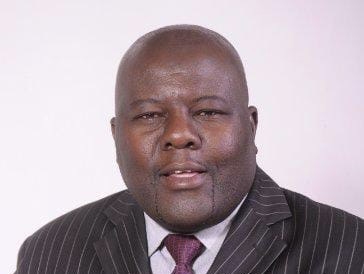


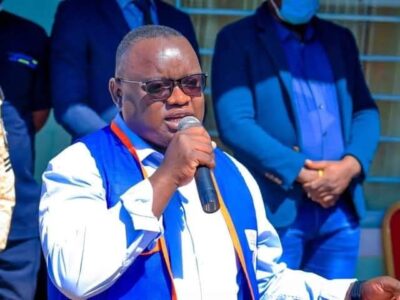
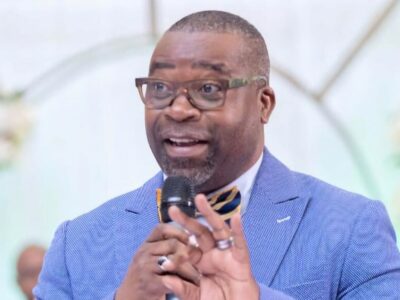

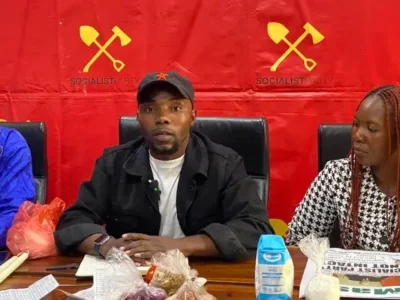

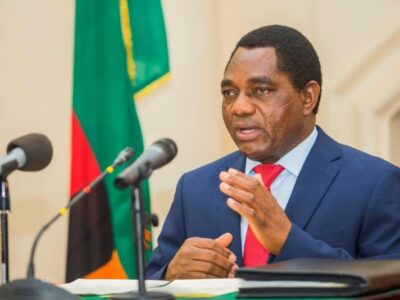


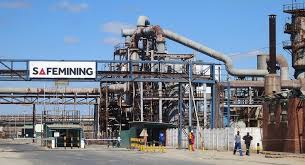

Comments